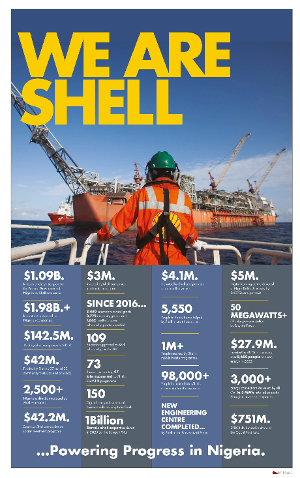Media Rights Agenda Train Journalists In Southern Nigeria On Use Of FOI Act For Investigations
Latest Headlines, News Across Nigeria Thursday, November 30th, 2023The exercise, held at Bridge Waters Hotel, Enugu 23rd, and 24th, November 2023, was attended by 30 participants made up of media professionals from broadcast, print and online media organizations who came from different states of Enugu, Imo, Ebonyi, Abia, Cross River and Delta states.
In his opening remark, Executive Director of MRA, Mr. Edetaen Ojo, explained that the objective of the workshop was to sensitize participating journalists and build their capacity to effectively use the Freedom of Information (FOI) Act for investigative reporting by familiarizing them with the key provisions of the Act and how to make effective use of it to seek and obtain information from public institutions and other relevant entities.
According to him, it was also aimed at increasing the quantity and quality of investigative reports carried out by media practitioners.
The workshop was support by the MacArthur Foundation through the Wole Soyinka Centre for Investigative Journalism (WSCIJ) under the Collaborative Media Engagement for Development, Inclusion and Accountability (CMEDIA) Project, a multi-level intervention that supports media independence, improved transparency, accountability, and good governance in state and local governments.
Our Correspondent who was a participant, reports that the workshop featured plenary presentations, brainstorming and break-out sessions during which different topics were addressed, including: an Overview and Elements of Investigative Reporting;
Others are, the Role of Records and Documents in Investigative Reporting; Understanding the Freedom of Information Act, 2011; The FOI Act and Investigative Reporting; and How Journalists and the Media Can Use the FOI Act.
Are treated were: Fact-checking and Investigative Reporting; Making Requests for Information Under the Freedom of Information Act; Deciding What Investigative Reports to Carry Out; Interviews in Investigative Reporting; and How to Present Stories from Investigative Reporting.
In a communique issued at the end of the programme, Participants acknowledged that the usage of the FOI Act by journalists and the media in general has been less than optimal, given its potential benefits to the media sector in seeking and obtaining information.
In order to ensure that the objectives of the Act are fully realized, the participants made a commitment to use the Act more regularly and frequently in their reporting and called on all other media practitioners to do the same.
In addition, the participants further noted that the media needs to do a better job of covering the activities of all public institutions, especially regulatory bodies and agencies, in order to hold them accountable to the public.
” They therefore urged the media to regularly scrutinize the activities and finances of public institutions, assess their level of performance of their functions as well as evaluate their effectiveness in terms of the achievement of their set goals and objectives.
Although the journalists recognized and acknowledged the importance of investigative reporting in exposing corruption, abuse of power, and other wrongdoing, they noted that most media organizations do not have the requisite resources to fund such investigative reports which can be time-consuming and expensive.
Given the benefits of such reporting to society and in ensuring good governance, they suggested that other avenues, such as investigative reporting funds and grants, should be established and made widely available to support journalists conducting investigative reporting.
The participants equally observed that journalists across Nigeria, but most notably in the south east, are witnessing frequent misuse of various laws, particularly the Cybercrimes Act, by law enforcement agents and government officials to harass them and constrain the activities of media practitioners.
The posited that such laws, should be amended to include safeguards against their abuse. In the interim, journalists should be properly sensitized about the existence of such laws, the dangers they pose to journalism practice as well as measures that journalists and other media practitioners can take to avoid becoming victims of such laws.
They also expressed concern that journalists are facing increasing threats to their safety and wellbeing as well as the safety of their family members arising from powerful figures who are displeased with media reports which expose their wrongdoing.
The Journalists said there was therefore a need to provide them with appropriate safety training so that they can properly protect themselves against these threats.
In addition, “there should be concerted efforts by governments at different levels and other stakeholders to prevent attacks against journalists, to protect journalists who are being threatened or attacked and to ensure that perpetrators of attacks against journalists are appropriately prosecuted and punished.
Furthermore, the participants noted, in order for journalists and other media workers to effectively perform the duties and functions imposed on the media by Section 22 of the Constitution, it is imperative that journalists are able to gather information safely and that journalists as well as their sources of information are adequately protected against reprisals and attacks for carrying out their professional duties.
Accordingly, “laws should be put in place to protect journalists from being compelled to disclose their confidential sources of information and to protect journalistic materials and equipment.
The participants in the communique which the unanimously adopted, expressed gratitude to Media Rights Agenda for organizing the workshop and giving them the opportunity to participate in it.
They also expressed their appreciation to the sponsors of the workshop, namely: the MacArthur Foundation and Wole Soyinka Centre for Investigative Journalism.
Related Posts
Short URL: https://www.africanexaminer.com/?p=92520






















